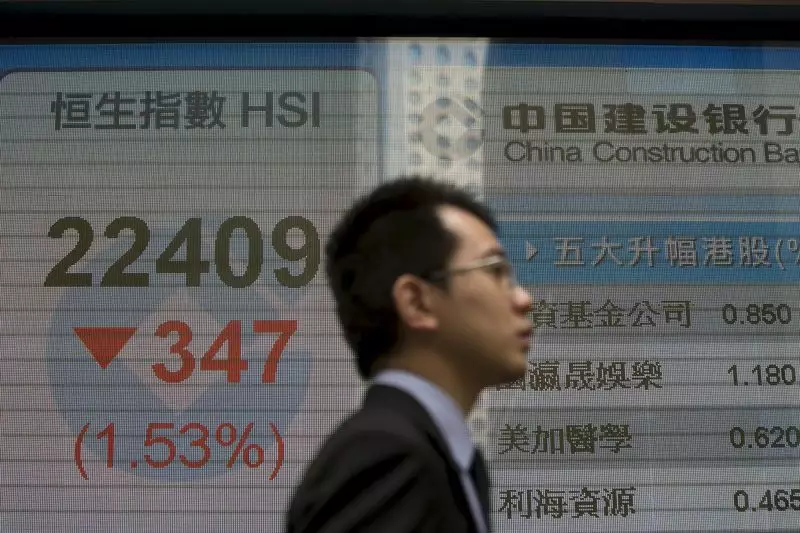On Tuesday, the dynamics of Asian stock markets exhibited a predominantly downward trend, deeply influenced by a climate of hesitation surrounding interest rates and the impending U.S. presidential election. As investors grappled with these uncertainties, many adopted a risk-averse posture. Notably, while the general sentiment pointed south, Chinese markets found a modest uplift following a reduction in interest rates, illuminating a diverse outlook across the region.
American market activity acted as a harbinger for Asian equities, which were dampened by retreating U.S. stock indices. The leading American benchmarks had recently registered record highs, but as Treasury yields began to rise, market apprehensions ensued. The correlation was evident as U.S. stock index futures showed mild negative trends during Asian trading hours, underscoring the interlinked nature of global markets.
Another factor weighing heavily on traders’ minds is the U.S. presidential election just around the corner. Recent polling indicates a tightening race between Republican nominee Donald Trump and Vice President Kamala Harris, igniting further speculation and caution among investors. With just two weeks left until election day, many market participants are positioned to monitor developments closely, acknowledging the possible implications on economic policy and market behavior post-election.
The current week also promises to unveil significant earnings reports from U.S. companies, adding another layer of focus for Asian investors. The anticipation of these earnings is expected to set the tone for market direction, given the potential volatility they may introduce ahead of the elections.
Diving deeper into Asian markets, Japan’s Nikkei 225 endured the steepest losses, tumbling by 1.7%. This downturn emerged even as the Japanese yen was observed at its lowest point in nearly three months. Investors expressed concerns regarding the Bank of Japan’s (BOJ) potential to ascend interest rates amidst rising inflation risks. Traditionally, a weaker yen would bolster Japanese exports; however, the associated market uncertainty overshadowed this typical benefit.
Upcoming elections in Japan, alongside the BOJ meeting at the end of October, further complicate the investment landscape. Analysts and investors alike keenly await inflation data due later this week, which is expected to play a pivotal role in shaping the future trajectory of Japanese monetary policy.
In stark contrast to its neighbors, Chinese markets emerged as a rare bright spot in the otherwise lackluster regional performance. The Shanghai Shenzhen CSI 300 and Shanghai Composite indices each enjoyed a modest gain of 0.2% to 0.3%, buoyed by a larger-than-anticipated cut to the People’s Bank of China’s benchmark loan prime rate. This proactive strategy by Beijing is perceived as an effort to invigorate economic growth amidst broader global headwinds.
The Hang Seng index in Hong Kong also reported a gain, contributing to the overall positive sentiment in China, which stands in contrast to the pervasive negativity observed in the rest of the region.
While the landscape across Asian markets appears generally bearish due to multifaceted external pressures, China’s strategic economic measures offer a glimmer of hope, reflecting a nuanced interplay of factors that investors must carefully navigate in the coming weeks.

